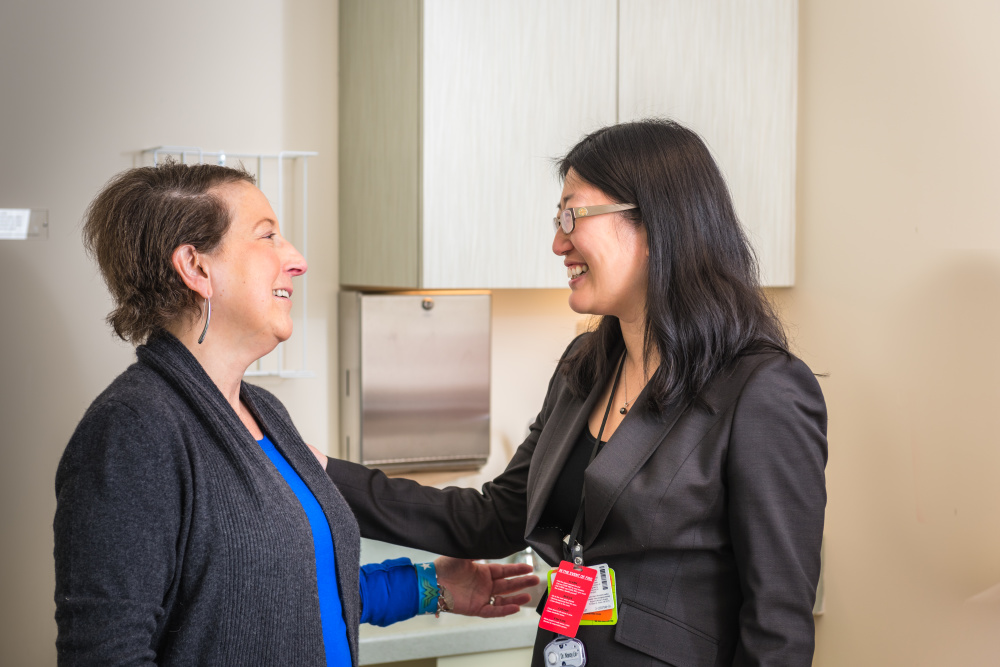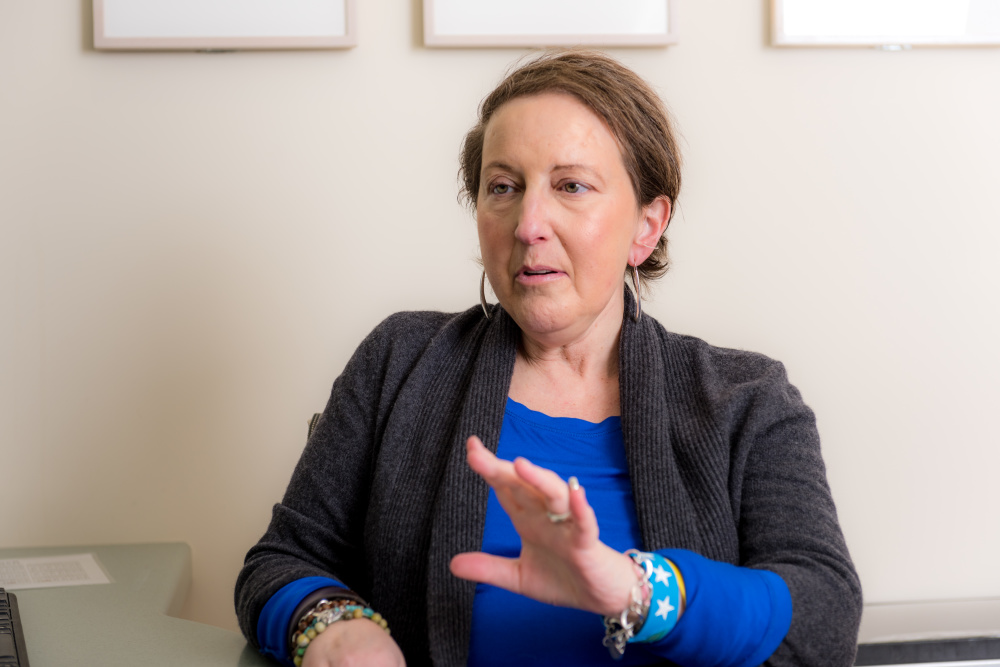
By Lisa J. Frank
I am a five-time cancer survivor – four times breast, one time melanoma – and a patient at the Susan F. Smith Center for Women’s Cancers. I am also a full-time practicing attorney who is living life to the fullest with stage IV breast cancer that has spread to my brain.
How did I come this far? It wasn’t just luck. I advocated for myself. I found the best doctors and care plan for me, my type of cancer, my personality, and my lifestyle.
Learn More:
If you put your mind to it, you will see – it’s not that hard to be your best advocate. I once had a non-profit colleague say, “I can’t fundraise, I don’t know anyone.” I told them to take out their Rolodex – yup, Rolodex; showing my age – think about how many people they know, and ask them for donations.
Advocating for yourself is very similar. Think about what you want, where you want it, and who can help get you there. When you have metastatic breast cancer, this is especially important — because although it is incurable, it is still treatable. And we all deserve to live our lives to the fullest.
When I was diagnosed with breast cancer at age 36, I went to a meeting of the Young Survival Coalition (YSC) with a group of other women under 40 with breast cancer. Over the years I have volunteered in many capacities with this organization, and met many amazing people along the way – including doctors and other medical professionals.
When I learned that my breast cancer had spread to my brain, I had whole brain radiation. After six months, about 26 tiny tumors re-appeared on my MRI. My radiation oncologist in my home state said he was not the expert on treating that many tumors. I spoke to other oncologists and contacts, and no one had a happy answer.
That was the first time I thought I might die. But I did not give up hope. I e-mailed a doctor I met through YSC. I told her about my situation, and she advised me to contact a neurosurgeon whose expertise is Gamma Knife radiosurgery, an advanced type of radiation treatment for, among other things, brain tumors. I also learned about clinical trials for metastatic breast cancer in the brain at Dana-Farber, and had a consult with Dr. Nancy Lin. I kept in touch to stay on her radar.
After the neurosurgeon zapped over 100 tiny tumors in my brain, he told me I was his most challenging patient. It was then that I contacted Dr. Lin to see if my ragged brain qualified for the Arry 380 clinical trial. I had enough cancer in my brain (one tumor measuring 1.1 cm) to qualify for the trial. I now travel to Dana-Farber from New Jersey every three weeks for treatment, and my journey is well worth it.
You, too, can be your own best advocate. Dig deep into your resources; through your circles, you could find someone who fits the description of what you are looking for. Find the right doctor for you. Never be afraid to ask for help. When someone offers help – say yes! And never give up hope.
I am here because I used my contacts, I accepted help, and I called my oncologist late at night when I was in pain.
You can do this. You can be your own best advocate.


My mom also had metastatic BC and I see the same fighting spirit that made her life so full and rich in you. Your example ripples out further than you’ll ever know.